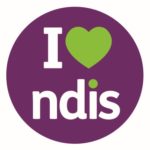Unlocking the Potential of NDIS Exercise Physiology

In the realm of health and wellness, NDIS Exercise Physiology stands out as a transformative service, meticulously designed to enhance both physical and mental well-being. At its core, Exercise Physiology encompasses a range of exercise interventions and physical activity education, tailored to meet the individual needs of participants. This service is not just about achieving behavioural change; it’s about instilling a sense of independence and improving the overall quality of life.
NDIS Exercise Physiology is delivered by accredited exercise physiologists, professionals who possess a deep understanding of the human body, chronic diseases, and the intricate balance required to manage pain, improve function, and enhance physical capacity. These allied health professionals in Australia are committed to providing evidence-based, effective exercise interventions that address a broad range of health conditions and chronic medical conditions.
Understanding the fees associated with NDIS Exercise Physiology is crucial, as it ensures that participants can access the necessary services without any financial hindrance. The NDIS funding structure is designed to support people living with disabilities, providing them with the resources needed to achieve their individual goals and improve their daily living.
In specific locations like Liverpool and Penrith, NDIS Exercise Physiology services are tailored to meet the unique needs of the community. Whether it’s helping individuals manage chronic conditions, recover from sports injuries, or improve their overall fitness and well-being, these services play a pivotal role in enhancing the health outcomes of NDIS participants.
Demystifying NDIS Exercise Physiology
NDIS Exercise Physiology stands as a beacon of hope and transformation in the healthcare landscape, offering a unique and specialized approach to managing a variety of health conditions and improving overall well-being. But what exactly does this service entail, and how does it differ from other forms of exercise and therapy? Let’s unravel the mystery and delve into the world of NDIS Exercise Physiology.
Understanding NDIS Exercise Physiology
At its core, NDIS Exercise Physiology involves the prescription of exercise programs and interventions by accredited exercise physiologists. These professionals possess a deep understanding of the human body, chronic diseases, and the role of physical activity in managing health conditions. Unlike general exercise programs or personal trainers, NDIS Exercise Physiology is tailored to meet the specific needs of individuals with chronic medical conditions, disabilities, or those requiring rehabilitation.
Unique Benefits and Approach
NDIS Exercise Physiology offers a plethora of benefits that extend beyond the realms of physical health. Participants can expect improvements in their mental health, functional capacity, and overall quality of life. The interventions are evidence-based and designed to achieve meaningful changes in health outcomes.
One of the unique aspects of NDIS Exercise Physiology is its holistic approach. Exercise physiologists assess the participant’s current level of function, medical history, and personal goals to develop a customized exercise program. This program not only addresses physical health issues but also aims to empower participants to manage their conditions independently.
Ability Action Australia’s NDIS Registered Services
Ability Action Australia stands out in the field of NDIS Exercise Physiology, offering services that are both comprehensive and participant-centered. Their approach is rooted in a deep commitment to improving the lives of NDIS participants, helping them to achieve greater independence and an improved quality of life.
As an NDIS registered provider, Ability Action Australia ensures that their exercise physiology services are accessible, affordable, and aligned with the NDIS funding structure. Their team of accredited exercise physiologists works diligently to provide services that are not only effective but also culturally sensitive and inclusive.
Services, Benefits, and Fees of NDIS Exercise Physiology
NDIS Exercise Physiology is a multifaceted service, offering a range of interventions and programs designed to cater to the diverse needs of participants. This section delves into the specifics of the services provided, the myriad of benefits associated with them, and the crucial aspect of understanding the associated fees.
Comprehensive Services Provided
NDIS Exercise Physiology encompasses a variety of services, each tailored to address specific health conditions, improve physical function, and enhance overall well-being. Some of the key services include:
Clinical Exercise Interventions: Tailored exercise programs aimed at managing chronic diseases, improving physical capacity, and enhancing functional ability.
Chronic Disease Management: Strategies and exercises to manage and alleviate the symptoms of chronic medical conditions.
Rehabilitation: Post-injury or post-surgery exercise programs to aid in recovery and restore function.
Disability Support: Exercise interventions designed to support individuals with intellectual and physical disabilities.
Pain Management: Techniques and exercises to manage and reduce chronic pain.
Strength and Conditioning: Programs to improve overall strength, balance, and endurance.

Unparalleled Benefits
Participating in NDIS Exercise Physiology yields a plethora of benefits, significantly contributing to improved health and quality of life. Participants can expect:
Enhanced Physical Health: Improvement in strength, endurance, mobility, and overall physical function.
Improved Mental Well-being: Reduction in symptoms of anxiety, depression, and stress, leading to better mental health.
Increased Independence: Empowerment to manage health conditions and disabilities, leading to greater autonomy.
Better Management of Chronic Conditions: Effective strategies to manage and alleviate symptoms of chronic diseases.
Improved Quality of Life: A holistic improvement in daily living, well-being, and life satisfaction.
Understanding NDIS Exercise Physiology Fees
Navigating the cost structures and fees associated with NDIS Exercise Physiology is crucial for participants. The fees are determined by the NDIS and are designed to be transparent and fair, ensuring that services are accessible to all eligible participants. It is important for participants and their families to understand how these fees work, how they are covered by NDIS funding, and how to optimize the utilization of their funds for the best possible outcomes.
Synergy with Physiotherapy
NDIS Exercise Physiology and Physiotherapy often work hand in hand to provide a comprehensive approach to health and well-being. While Exercise Physiology focuses on long-term behavior change and management of chronic conditions through exercise, Physiotherapy often addresses acute injuries, pain, and specific impairments. Together, they create a holistic strategy that not only addresses immediate health issues but also contributes to long-term health and independence.
Localized Services in Liverpool and Penrith
NDIS Exercise Physiology extends its transformative services to various locales, ensuring that individuals across different regions have access to tailored programs and professional support. In this section, we spotlight the localized services in Liverpool and Penrith, exploring the unique offerings and community integration that these areas provide.
NDIS Exercise Physiology in Liverpool
Liverpool, with its vibrant community and diverse population, is home to a range of NDIS Exercise Physiology services designed to meet the specific needs of its residents. Local accredited exercise physiologists and allied health professionals are deeply integrated into the community, providing services that are culturally sensitive and easily accessible.
Tailored Programs and Professional Support
In Liverpool, NDIS Exercise Physiology services are meticulously crafted to cater to the individual needs of participants. From managing chronic medical conditions to improving overall physical function, the programs are diverse and inclusive. The local professionals are not just service providers; they are a part of the community, ensuring that each participant receives personalized and empathetic care.
Community Integration and Resources
The services in Liverpool are not just confined to clinical settings; they extend into the community, fostering a sense of belonging and support. Participants have the opportunity to engage in group exercise programs, community events, and workshops, all aimed at enhancing their health and well-being.
NDIS Exercise Physiology in Penrith
Penrith, known for its scenic beauty and strong community spirit, also boasts a range of NDIS Exercise Physiology services. The focus here is on accessibility and integration, ensuring that all members of the community have the opportunity to benefit from these services.
Accessible Services for All
In Penrith, the emphasis is on making NDIS Exercise Physiology services as accessible as possible. From convenient locations to flexible scheduling, every aspect of the service is designed to accommodate the needs of the participants. The local professionals are committed to breaking down barriers and ensuring that everyone, regardless of their circumstances, has access to quality care.
Leveraging Local Networks for Optimal Health
The strength of the community in Penrith is a significant asset for NDIS Exercise Physiology services. Participants are encouraged to leverage local networks, support groups, and resources to enhance their health journey. The collaborative spirit of the community serves as a foundation for building resilience and achieving health goals.
Tips for Leveraging Local Services
Whether in Liverpool or Penrith, participants can optimize their health outcomes by actively engaging with local services and networks. Some tips include:
Connect with Local Support Groups: Joining local support groups and networks can provide additional resources and a sense of community.
Participate in Community Events: Engaging in community events and workshops can enhance learning and provide opportunities for social interaction.
Communicate Openly with Your Exercise Physiologist: Establishing clear communication with your exercise physiologist ensures that your program is tailored to your specific needs and goals.

Navigating NDIS Funding and Accessibility
Navigating the intricacies of NDIS funding can be a complex process, especially when it comes to allocating funds for specific services like Exercise Physiology and Physiotherapy. In this section, we provide practical advice and address common queries to ensure that participants in the Liverpool and Penrith regions, and beyond, can maximize their benefits while managing costs effectively.
Utilizing NDIS Funding for Exercise Physiology and Physiotherapy
NDIS funding is designed to provide support for individuals with disabilities, and this includes access to Exercise Physiology and Physiotherapy services. To effectively utilize your NDIS funding:
Understand Your NDIS Plan
Familiarize yourself with your NDIS plan, particularly the categories and budgets allocated for different services. Exercise Physiology and Physiotherapy services are typically funded under the ‘Improved Health and Well-being’ or ‘Improved Daily Living’ categories.
Communicate with Your Exercise Physiologist or Physiotherapist
Before commencing services, discuss the cost structure and number of sessions required with your provider. Ensure that the services and fees align with your NDIS plan to avoid any unexpected costs.
Keep Track of Your Funding
Regularly monitor your NDIS funding balance to ensure that you are on track and making the most of your allocated funds. Utilize the NDIS portal or seek assistance from your support coordinator if needed.
Addressing Common Funding Queries and Concerns
Participants often have queries and concerns regarding the utilization of NDIS funding, particularly in specific regions like Liverpool and Penrith.
Accessing Services in Regional Areas
In areas like Liverpool and Penrith, ensure that you are aware of the available local services and providers. If services are limited, discuss travel or telehealth options with your provider.
Managing Out-of-Pocket Costs
While NDIS funding covers a significant portion of the costs, there may be instances where out-of-pocket expenses are incurred. Discuss any potential additional costs with your provider beforehand and explore options to minimize these expenses.
Maximizing NDIS Funding Benefits
To ensure that you are making the most of your NDIS funding:
Prioritize Essential Services
Identify and prioritize services that are essential to your health and well-being. Allocate your funding to these services to ensure that you are receiving the necessary support.
Explore Group Sessions or Workshops
Group sessions or workshops can be a cost-effective way to access Exercise Physiology or Physiotherapy services. These sessions also provide an opportunity for social interaction and community engagement.
Seek Advice from Professionals
If you are unsure about how to best utilize your NDIS funding, seek advice from your support coordinator, exercise physiologist, or an NDIS financial planner.
The Exercise Physiology Session: What to Expect
Embarking on a journey with NDIS Exercise Physiology is a proactive step towards improved health and well-being. To ensure participants are well-prepared and have clear expectations, this section provides a detailed walkthrough of a typical session, highlights the significance of multidisciplinary care, and offers practical tips for preparation and follow-up.
A Typical NDIS Exercise Physiology Session
NDIS Exercise Physiology sessions are tailored to meet the individual needs and goals of each participant. Here’s what you can typically expect:
Initial Assessment
Your first session will likely involve a comprehensive assessment. The exercise physiologist will gather information about your medical history, current level of physical activity, and specific health goals. This assessment is crucial as it helps in developing a personalized exercise program.
Development of Exercise Program
Based on the initial assessment, the exercise physiologist will create a tailored exercise program. This program will take into account your health conditions, physical capabilities, and personal goals. The exercises prescribed will be safe, effective, and aligned with evidence-based practices.
Exercise Demonstration and Participation
The exercise physiologist will demonstrate each exercise, ensuring that you understand the correct form and technique. You will then be guided through the exercises, with the physiologist providing feedback and making adjustments as necessary.
Education and Support
Education is a key component of NDIS Exercise Physiology. The exercise physiologist will provide information on the importance of each exercise, how it contributes to your overall health, and tips for maintaining motivation.
The Role of Multidisciplinary Care
NDIS Exercise Physiology does not operate in isolation. It is often part of a broader, multidisciplinary care plan that may include other allied health professionals, such as physiotherapists, dietitians, and occupational therapists.
Collaborative Approach
A collaborative approach ensures that all aspects of your health are addressed. The exercise physiologist will work closely with other health professionals involved in your care to ensure that your exercise program complements other treatments and interventions.
Local Allied Health Professionals
In regions like Liverpool and Penrith, there is a strong network of local allied health professionals. Leveraging this network can enhance your care and provide additional support and resources.
Preparation and Follow-Up Tips
To maximize the benefits of each session, consider the following tips:
Before the Session
Wear Comfortable Clothing: Ensure you are dressed in comfortable clothing that allows for movement.
Stay Hydrated: Drink water before your session to stay hydrated.
Prepare Any Questions: If you have questions or concerns, write them down and bring them to the session.
After the Session
Follow Exercise Recommendations: Adhere to any exercise recommendations or homework provided by the exercise physiologist.
Monitor Your Progress: Keep track of your progress and share any changes or challenges with your exercise physiologist in subsequent sessions.
Stay Engaged: Stay engaged with your exercise program and reach out to your exercise physiologist or other allied health professionals if you need additional support.
Conclusion: Empowering Your Journey with NDIS Exercise Physiology
As we wrap up our exploration of NDIS Exercise Physiology, it’s clear that this service is a powerful tool in the pursuit of improved health and well-being. By understanding the intricacies of NDIS Exercise Physiology, its associated fees, and the localized services available in regions like Liverpool and Penrith, participants are empowered to take control of their health journey.





